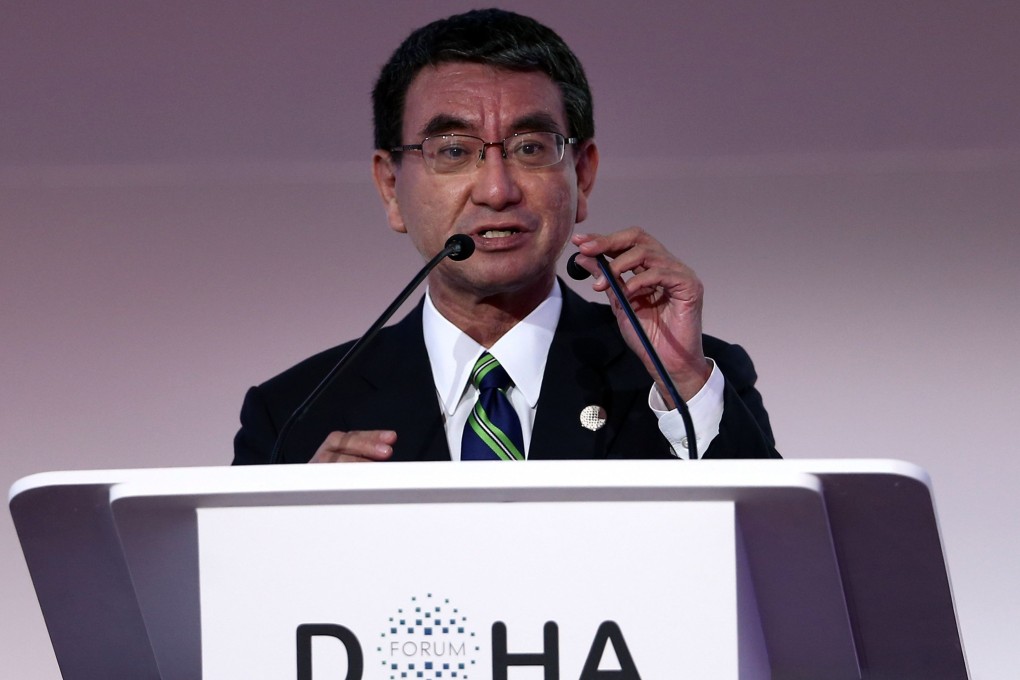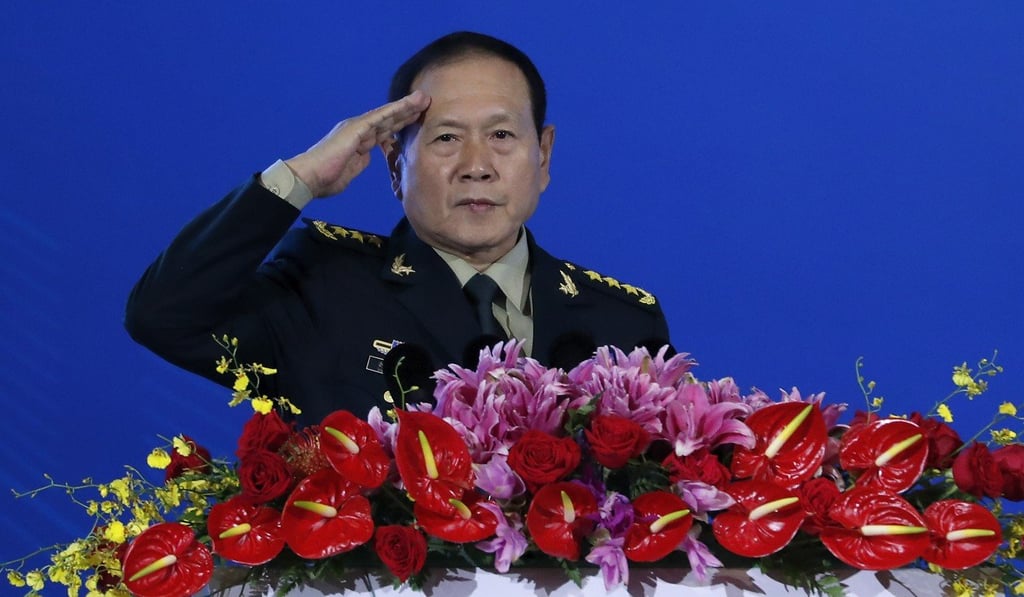Advertisement
Japan’s defence chief hits out at Beijing on South China Sea, military build-up
- Taro Kono, seen as a potential successor to Prime Minister Shinzo Abe, made the remarks days ahead of a meeting with Chinese counterpart Wei Fenghe
- His comments serve as a reminder for Beijing to play by the international rules even as ties with Tokyo warm, according to one analyst
Reading Time:3 minutes
Why you can trust SCMP

Japan’s Defence Minister Taro Kono has criticised China for its actions in the contested South China Sea and waters close to Japan, days before visiting Beijing to meet his Chinese counterpart, Wei Fenghe.
“China is engaging in unilateral and coercive attempts to alter the status quo based on its own assertions that are incompatible with the existing international order,” Kono on Sunday at the Doha Forum, an international conference in Qatar.
The senior politician – who previously served as foreign minister and has been touted as a potential successor to Prime Minister Shinzo Abe – added that Japan “is also concerned about China’s rapid enhancement of its military power without transparency, including its nuclear and missile capabilities”, public broadcaster NHK reported.
Advertisement
“The rule of law, which is of critical importance to global stability and security, is a value shared by the international community, including China,” he said, adding that countries cannot be permitted to expand their spheres of influence by force and “aggressors must be forced to pay the cost”.

Advertisement
Hiromi Murakami, a professor of international relations at the Tokyo campus of Temple University, admitted to being “rather surprised” at the tone of the minister’s comments.
“Coming so soon after security talks between Japan and India, I can only see this as sending a reminder to China that it cannot do whatever it wants, wherever it wants,” she said, referring to how the two Asian democracies agreed last month to step-up bilateral security cooperation.
Advertisement
Select Voice
Choose your listening speed
Get through articles 2x faster
1.25x
250 WPM
Slow
Average
Fast
1.25x